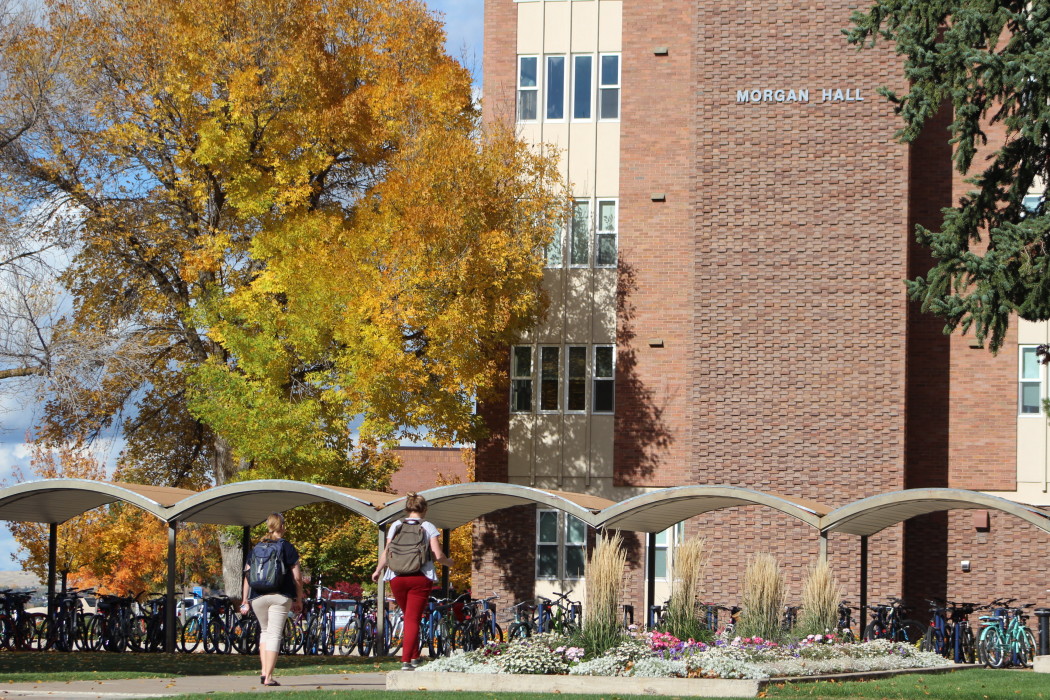Recent USU housing policy change allows opposite-sex guests overnight
Thanks to a new housing policy, students who live on campus can now have their boyfriend, girlfriend or opposite-sex-BFF spend the night.
That is, as long as roommates give the green light first.
Students are still required to get signed permission from all their roommates and their residence director before guests are allowed to spend the night in campus housing. This policy change just removes the gender stipulation.
Executive director of Housing and Residence Life Steve Jenson said changing the policy wasn’t so much about gender as it was about clearly defining its intention.
“We’re just trying to make it more neutral and more inclusive of a policy and simpler to understand because I think it caused some confusion for some people,” Jenson said.
At its core, the policy is meant to emphasize the right of all students in a suite or apartment to feel comfortable and safe in their living space.
The old policy prohibited overnight guests of the opposite sex, but Jenson said guests of the same sex could be “just as bothersome.”
Whitney Milligan, the department of Housing and Residence Life’s director of residence life, said residence staff are excited about the change, which has been in the works for a while now.
Milligan said she’d heard some feedback from staff that the old policy could be interpreted as “disregarding” members of the LGBT community and their relationships.
“It’s not blatant discrimination; it’s just not validating a different sexual orientation,” said Macy Keith, the Access and Diversity Center’s recently-appointed LGBT program coordinator, who spent four years working with USU’s housing department as a resident assistant and residence director.
Keith said by specifically singling out people of the opposite gender and prohibiting them as guests, the policy failed to acknowledge that LGBT students could have meaningful relationships, too.
“And on the flip side, ‘Well, they can get away with [having significant others spend the night],’ but those who are in heterosexual relationships can’t,” Milligan said.
Milligan said residence staff raised questions about the policy previously, and it made sense to change it for the sake of clarity.
“It’s just a thing that people get hung up on, when our policy clearly states that you can’t have overnight guests at all unless roommates agree.”
While residence staff may be excited about the change, it doesn’t appear very many on-campus residents are even aware a change was made.
Victoria Steel, a freshman who lives in the Student Living Center, said she didn’t know the policy had changed but she didn’t think it would affect her and her roommates very much.
“I don’t really care much because I’m not having people overnight anyways,” Steel said.
Alexander Troutner, a junior majoring in Religious Studies who lives on campus, said he hadn’t heard about the policy change, either, but that “it might lead to more roommate conflict given the fact that we’re in Utah.”
Zach Rucker is a freshman who lives on campus, too. He said he didn’t feel the policy would really affect him.
“It’s everyone’s choice,” Rucker said. “I mean, it’s got to be okay with the roommates.”
And he’s right, at least in Jenson’s book.
The policy was outdated and unclear, and Jenson said changing it wasn’t just about being less dismissive of same-sex relationships. Now, it emphasizes the rights of the rent-paying students more than the gender of the prospective guests.
@alyssarbrts

